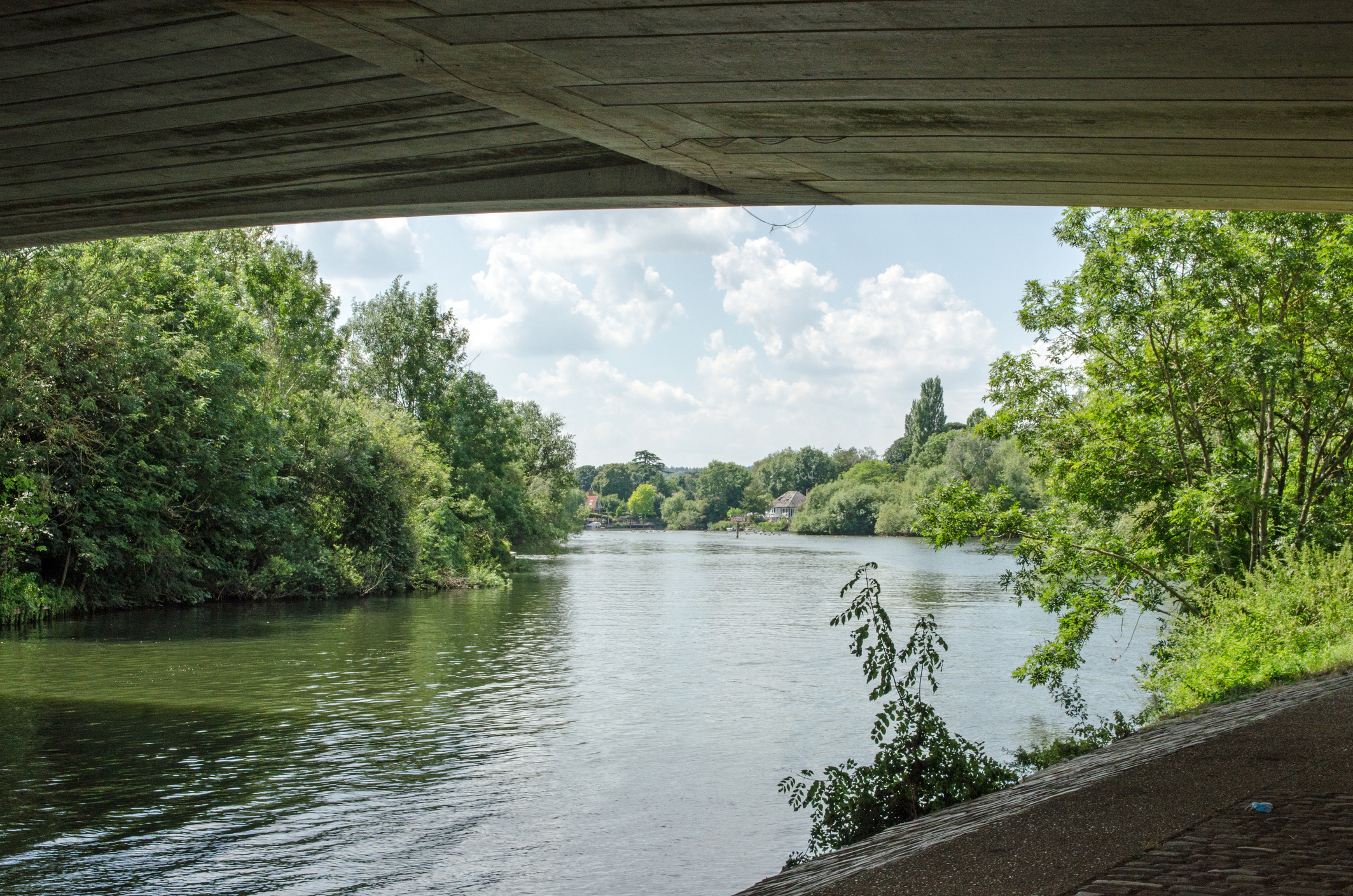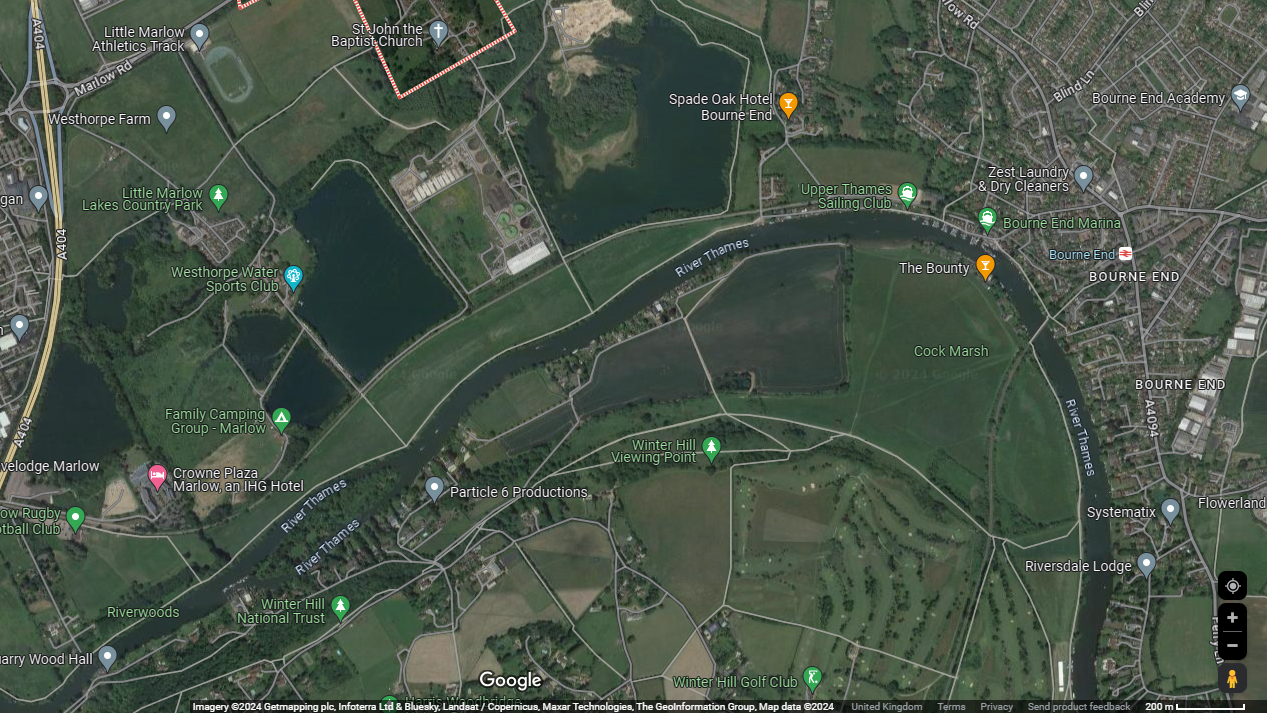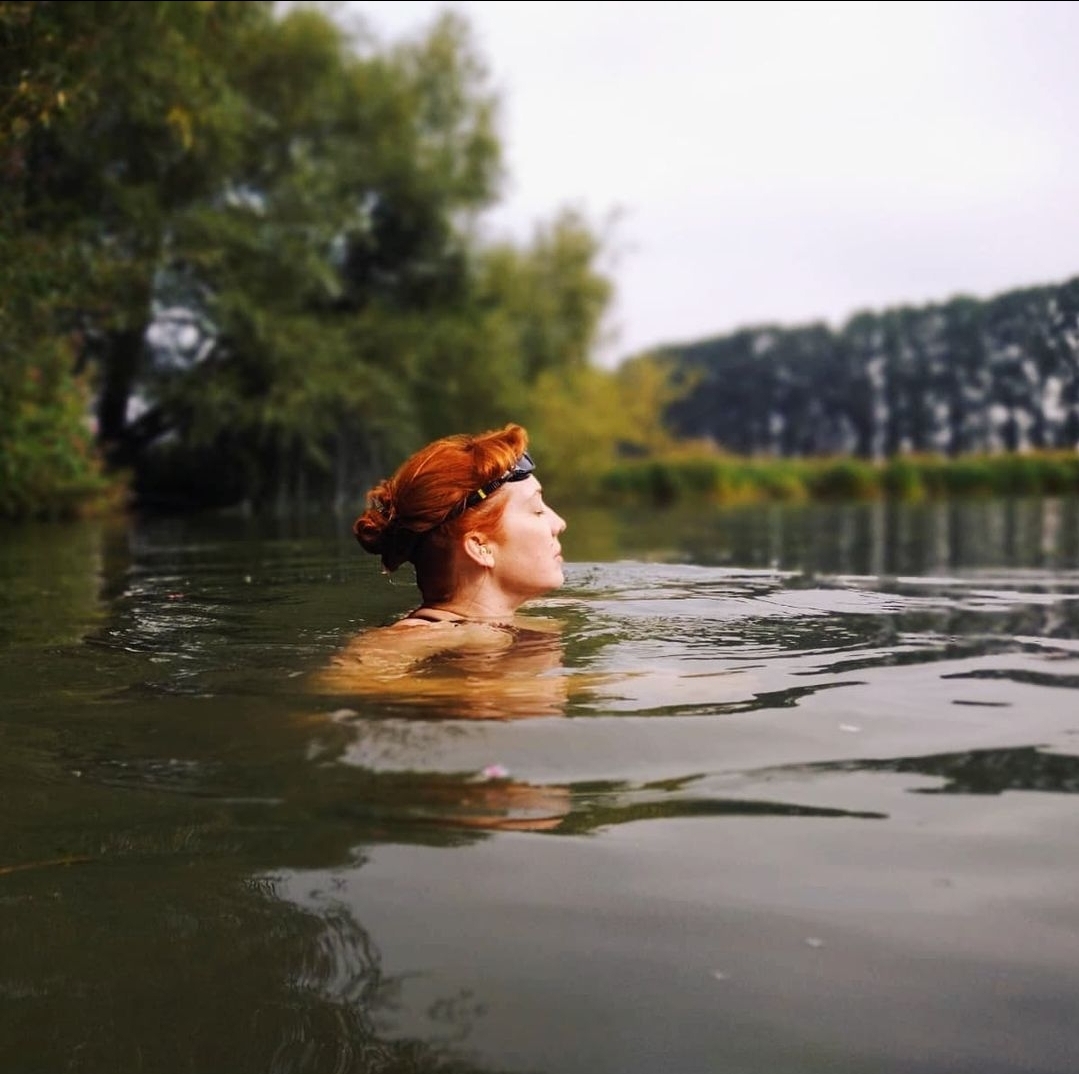"Don't even think about wild swimming here" - new study reveals shocking pollution levels in the Thames
Water company accused of discharging dangerous levels of waste into the world-famous river

Wild swimmers and water sports enthusiasts have been warned to stay out of a picturesque part of the Thames after dangerous levels of pollution were found.
British naturalist and explorer Steve Backshall commissioned a study of the waterway, which found nitrates, norovirus, e.coli, enterovirus and crass phage in the water at concentrations in some cases tens of thousands of times higher than that considered safe.
In a video posted to Instagram (scroll down to watch it in full) he said: "The Thames is toxic. These are the results that I got from my independent survey that I had done after the last sewage outage by Thames Water just upstream of here and they are horrifying.
"We have norovirus, e.coli and enterovirus all present at levels way higher than you would need to get sick from being close to the river. In fact, in some cases so high that the laboratory technician refused to open them.
"We have bacteria present here at tens of thousands of times what it should be, that's only present in human guts.
"We have phosphates, nitrates and ammonium off the scale, all at environmentally damaging levels, which could lead to the death of the entire ecosystem. So don't even think about wild swimming here. People who are canoeing or rowing, treat the river as if it is a biohazard. I wouldn't even allow your dog into the river right here. It could seriously be dangerous to them.
"If I was to discharge my sewerage system here I could be arrested for it. Yet in just one single outage just upstream from here Thames Water had 16 hours of it going into the river."
All the latest inspiration, tips and guides to help you plan your next Advnture!
Backshall called on local lawmakers Joy Morrisey and Theresa May to intervene to protect the future of the river.
He added: "Something has to be done about it now. This is not a drill. This is a failing utility that is putting all of our health at risk."

The samples were taken downstream from the Little Marlow treatment works, which are run by Thames water. They were analysed by Bangor University waste water research centre and the university's wetlands group.
The research team said they found the following:
Nitrates - 25mg/L. Acceptable levels under UK guidance are 0.01-3mg/L
Norovirus - up to 39,562gcl/L. Concentrations over 10gc/L can cause you to catch the virus from the water
Enterovirus - very high
E.Coli - very high; enough to damage human health
Crass phage - 36,000gc/L. Acceptable levels under UK guidance are 10gc/L.
The researchers said about the levels of crass phage that "Levels like this are found in undiluted effluent, not in a diluted river."
The researchers concluded that the pollution was coming from human waste and would lead to the death of the river's ecosystem.
A post shared by Steve Backshall (@backshall.steve)
A photo posted by on
Thames Water were approached for a comment and told Advnture: “Taking action to improve the health of rivers is a key focus for us, and we are engaging with Steve alongside other stakeholders to address their concerns.
"There are clear guidelines on how samples should be taken in order to give an accurate picture of the quality of the water and we would be keen to understand more about the approach taken in this instance.
"An upgrade is planned for Little Marlow Sewage Treatment Works to improve its ability to treat the volumes of incoming sewage, reducing the need for untreated discharges in wet weather."
Thames Water was fined £3.33million (GBP) in 2023 after a judge found the company had deliberately misled government investigators over an accidental discharge of untreated sewage and rainwater in 2017, which pour into several rivers, killing thousands of fish.
Prosecutions of Thames Water by the Environment Agency for pollution incidents have now led to fines of £35.7m between 2017 and 2023.
- How to stay safe in open water: Wild swimming for beginners

Rosee Woodland developed a taste for adventure at a young age, growing up in a home where camping was the default holiday, and good weather was a vacation bonus rather than a necessity. After bike-packing the length of France in her mid teens with her family, she started to undertake solo forays in her 20s, usually without the benefit of much technical gear at all. Happily, the years she later spent as a mountain biking journalist eventually gave her an appreciation of decent kit! These days she loves a water-based adventure, and is an outdoor swim coach, and a keen free diver. She has a soft spot for Northern Ireland's Mourne mountains, and can also be found hiking and kayaking in Pembrokeshire and the South West of the UK.
